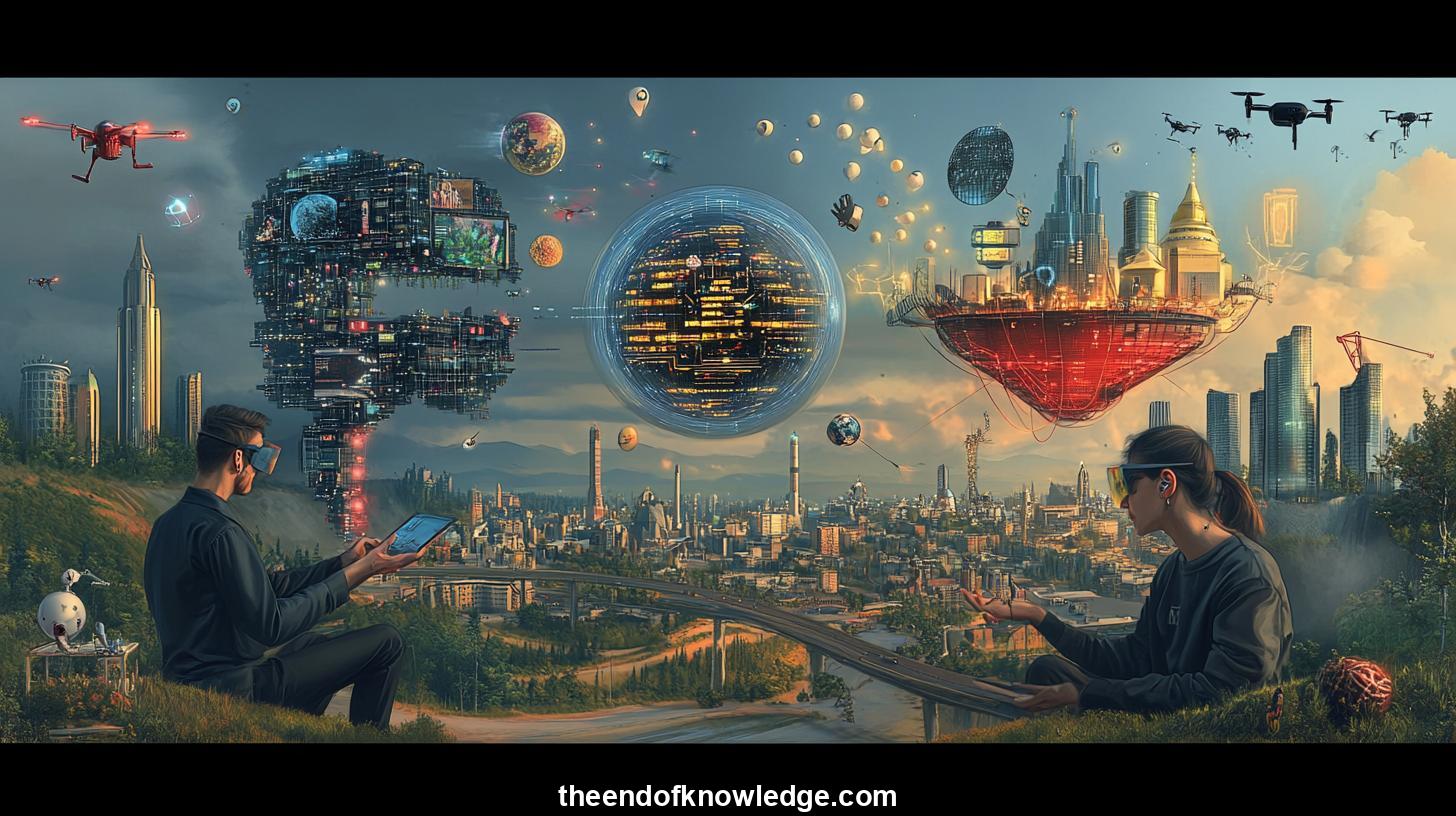 >
>
Concept Graph, Resume & KeyIdeas using DeepSeek R1 :
Resume:
discusses the transformative impact of artificial intelligence (AI) on society, focusing on its integration into businesses, ethical considerations, and societal implications. It highlights AI's potential to revolutionize industries, improve efficiency, and solve complex problems, while also addressing concerns about job displacement and the need for ethical regulation. The discussion emphasizes the importance of human-centric leadership and the role of education in preparing for an AI-driven future. It also explores the balance between technological advancement and preserving human values, advocating for a multidisciplinary approach to harness AI's benefits responsibly.30 Key Ideas:
1.- AI is revolutionizing industries by enhancing efficiency and solving complex problems.
2.- Businesses are leveraging AI to optimize operations and gain competitive advantages.
3.- Ethical concerns arise regarding AI's impact on employment and data privacy.
4.- Human-centric leadership is crucial to navigate the challenges posed by AI.
5.- Education systems must adapt to prepare workers for an AI-driven economy.
6.- Multidisciplinary approaches are essential for responsible AI development.
7.- AI raises questions about the future of work and job displacement.
8.- Ethical regulation of AI is necessary to prevent misuse and ensure fairness.
9.- AI's integration into healthcare can improve diagnostics and patient care.
10.- The role of organizations like UNESCO in regulating AI is explored.
11.- AI's impact on creativity and art challenges traditional notions of human talent.
12.- The need for a balanced approach between technology and human values is emphasized.
13.- AI's potential to address global challenges like climate change is significant.
14.- The importance of resilience and adaptability in a rapidly changing world is highlighted.
15.- AI's influence on societal norms and cultural values is a key consideration.
16.- The discussion underscores the importance of ethical AI development.
17.- AI's role in education and re-skilling programs is vital for future readiness.
18.- advocates for a humanistic approach to AI integration.
19.- The balance between technological progress and human well-being is crucial.
20.- AI's impact on mental health and societal well-being is a growing concern.
21.- The need for global cooperation in AI regulation is emphasized.
22.- AI's potential to exacerbate social inequalities is a significant issue.
23.- The importance of transparency in AI decision-making processes is highlighted.
24.- AI's role in enhancing accessibility for people with disabilities is explored.
25.- discusses the ethical implications of AI in decision-making roles.
26.- AI's impact on democratic processes and governance is a key topic.
27.- The need for public awareness and education about AI is stressed.
28.- AI's potential to transform the future of work is a central theme.
29.- The importance of human creativity and empathy in an AI-driven world is emphasized.
30.- concludes by advocating for a responsible and ethical approach to AI development.
Interviews by Plácido Doménech Espí & Guests - Knowledge Vault built byDavid Vivancos 2025